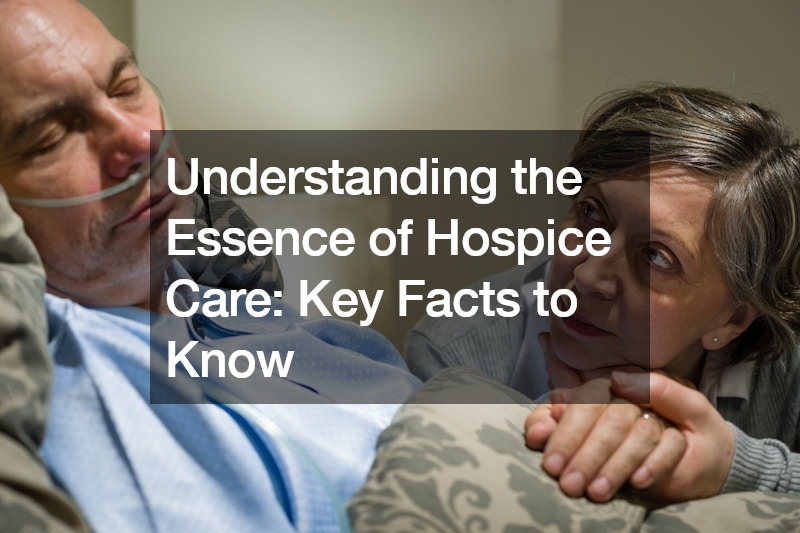Hospice care, a term familiar to many, is often misunderstood. Most associate it solely with end-of-life care, missing the broader perspective it encompasses. In reality, hospice care is about living as fully as possible for as long as possible, with a team of compassionate professionals dedicated to alleviating suffering and pain.
Not a Place, but Quality Medical Care:
Firstly, it’s crucial to dispel the common misconception that hospice is a physical location. Instead, it constitutes high-quality medical care, emphasizing comfort and enhancing the overall quality of life for individuals facing a terminal illness.
This nuanced understanding sets the stage for appreciating the broader scope of hospice care.
Financial Accessibility:
One significant aspect that often causes concern is the financial burden of medical care. Hospice care, however, is accessible. It is covered by Medicare, Medicaid, and most insurance plans, usually without imposing any direct costs on the patient. This financial accessibility ensures that individuals can receive the necessary care without the added stress of financial strain.
Inclusive Care for All:
Hospice care is not exclusive; it is inclusive. It serves anyone with a life-limiting illness, transcending boundaries of age, type of illness, or background. Regardless of who you are or where you live, hospice care is designed to provide comfort, dignity, and peace to individuals and their families during challenging times.
Core Values:
The core values of hospice care form the backbone of its approach. These values include allowing the patient to be with family, providing spiritual and emotional support, and ensuring effective pain management. Importantly, these values cut across all cultures, recognizing the diverse needs and preferences of individuals receiving hospice care service.
Home-Based Care:
Research consistently shows that a majority of Americans prefer to be at home during the final stages of their lives. Hospice makes this preference possible for most people. It extends its services beyond traditional healthcare settings and accommodates individuals in their homes, nursing homes, and assisted living facilities.
Duration of Care:
Contrary to common misconceptions, hospice care is not a brief intervention. Patients and families can receive care for six months or longer, ensuring sustained support during the challenging phases of a life-limiting illness. This prolonged duration reflects the commitment of hospice care to accompany individuals on their journey with compassion and expertise.
Personal Physician Continuity:
Another unique aspect of hospice care is that individuals can maintain their referring physician while receiving hospice services. This continuity ensures that the patient’s healthcare team remains familiar and can seamlessly integrate with the hospice care service, providing a more holistic approach to medical care.
Grief and Bereavement Support:
Recognizing the emotional toll of a life-limiting illness, hospice care extends its support beyond the individual to encompass their family and the larger community. Grief and bereavement counseling are integral components of hospice care, acknowledging the importance of holistic well-being during these challenging times.
Early Initiation for Maximum Benefits:
To get the most out of what hospice care can offer, early initiation is encouraged. It’s not just about imminent death; hospice services are designed to care for individuals during the last six months of their lives. Early engagement ensures that individuals receive comprehensive support, managing both physical and emotional aspects of their condition.
Certification for Continued Care:
Contrary to a common misconception, one does not have to be imminently dying to receive hospice services. Certification from a physician that an individual is terminally ill allows them to remain in hospice services. This flexibility ensures that individuals receive the care they need at the right time, based on their unique circumstances.
Interdisciplinary Approach:
Hospice care embraces an interdisciplinary approach, involving a team of healthcare professionals, including doctors, nurses, social workers, counselors, and volunteers. This collaborative effort ensures that individuals receive comprehensive care addressing their physical, emotional, and spiritual needs.
Pain and Symptom Management:
A cornerstone of hospice care is effective pain and symptom management. The focus shifts from curative treatments to enhancing comfort and quality of life, ensuring that individuals can live their remaining days with dignity and minimal discomfort.
Patient-Centered Care:
At the heart of hospice care is a patient-centered approach. The care plans are tailored to meet the unique needs and preferences of each individual, empowering them to make decisions about their care and end-of-life journey.
In conclusion, understanding the essence of hospice care goes beyond perceiving it as a mere endpoint. It’s about embracing life in its entirety, even in the face of a terminal illness. The diverse range of services, financial accessibility, and holistic support provided by hospice care services make it a crucial component of compassionate healthcare, addressing the needs of individuals and their families during challenging times. To truly appreciate the benefits, it’s advised to familiarize oneself with these key facts before a health crisis arises, ensuring that the care received aligns with one’s preferences and values.
.

